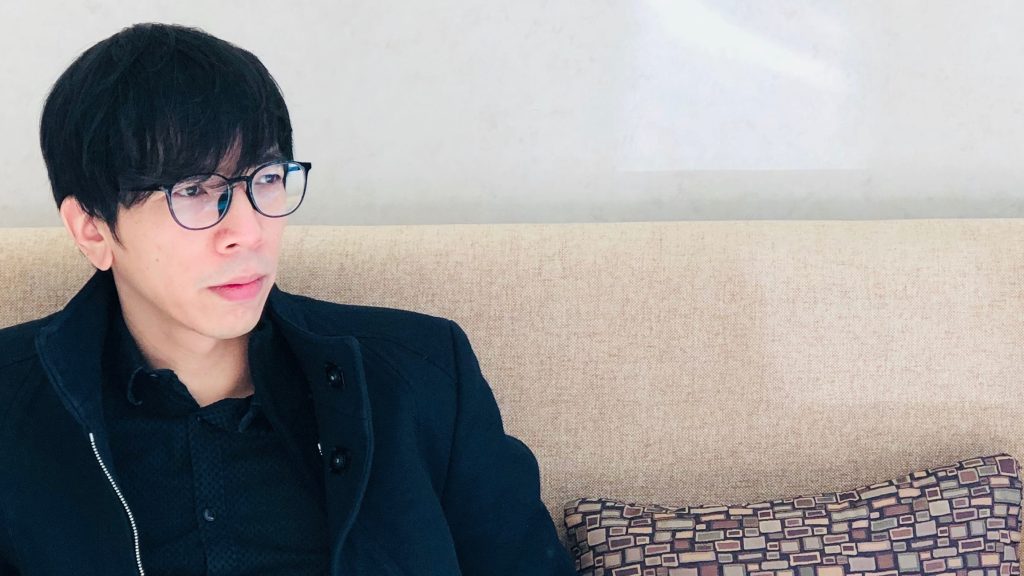FASS’ Assoc Prof Irving Goh Appointed to National Humanities Center Fellowship
June 23, 2022
IN BRIEF | 10 min read
- Associate Professor Irving Goh (NUS English, Linguistics and Theatre Studies) will be joining the renowned National Humanities Centre’s intellectual community as he pursues work on his project, 'Living On After Failure'.

Associate Professor Irving Goh (NUS English, Linguistics and Theatre Studies) has been selected for a fellowship at the National Humanities Center (NHC), one of the world's leading institutes for advanced study and the only independent institute of its kind dedicated exclusively to the humanities.
“I am absolutely honoured to be named a fellow at the NHC. I also feel very lucky as I have failed in other applications for other fellowships, so I know how difficult it is to be awarded such a prestigious one. I definitely do not take for granted this wonderful opportunity,” shared Assoc Prof Goh, whose application numbered among the 592 submissions this year.
Assoc Prof Goh joined NUS in 2017 as President's Assistant Professor of Literature and was a recipient of the Faculty of Arts and Social Sciences 2021 Award for Excellent Researcher. He is the author of The Reject: Community, Politics, and Religion after the Subject, which was in 2015 awarded one of the Modern Language Association’s major prizes: the 23rd Aldo and Jeanne Scaglione Prize for the Best Book in French and Francophone Studies. His current primary research interests are in affect theory, autotheory, World Literature theories, contemporary Anglo-American literature, and questions of race. He has published articles in Angelaki, Cultural Politics, Arizona Quarterly, MLN, and diacritics, among others.
Assoc Prof Goh’s NHC fellowship begins the coming 2022/23 academic year, and he will join 32 other fellows as part of the Center's intellectual community as he pursues work on his project, Living On After Failure.
“Living on after Failure is a proposal to think about failure as failure, which is to say, to take, accept, recognise or acknowledge failure in all its negativity. I doubt we have ever dared to confront failure directly. Instead, we tend to turn failure into something else, especially its opposite, which is success. As such, we have not thought about failure in any serious or rigorous manner,” said Assoc Prof Goh.
“But I argue that doing so can tell us something about forms of living pertaining to those whose existences are overwhelmed with a sense of failure, and we must recognise that these are equally legitimate forms of living and should not be bracketed or disregarded.”
Founded in 1978, the NHC admits around forty fellows every year, who are chosen from hundreds of international applicants representing a broad range of humanistic scholarship. Fellows spend a full year dedicated to research and writing without any teaching obligations, all while being able to share ideas in seminars, lectures, and conferences at the Center.
On this unique opportunity to share insights and criticism with other scholars, Assoc Prof Goh remarked, “One of the observations made in my project is that each person experiences failure and its aftermath differently. It is important to highlight this difference so that failure is not reduced to some flat, homogeneous phenomenon. In this regard, I am keen to hear from other fellows at the NHC on their individual senses of failure and the gestures they adopt that help them live on after failure.”
Since its inception, the NHC has welcomed over 1,500 scholars who have published around 1,700 books. Many of these studies have proven to be influential in their fields and been recognised for the quality of their scholarship and writing, generating new knowledge and furthering understanding of all forms of cultural expression, social interaction, and human thought.
As Assoc Prof Goh joins this esteemed fellowship, he shares what he hopes readers might take away from Living On After Failure. “One never knows what readers will make of any book, to be honest. But if there’s one thing that I wish readers would do after reading the book, it would be to truly listen to those who are experiencing failure, allowing them to articulate as much and as best as possible the senses of failure that overwhelm them. What is to be done, in listening, is to provide them with a discursive and affective space in which they can elucidate, in their own terms, their sense of existence that is inextricably implicated with failure.”
This article first appeared in NUSNews on 23 June 2022.

